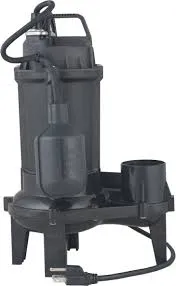Serbian
- Afrikaans
- Albanian
- Amharic
- Arabic
- Armenian
- Azerbaijani
- Basque
- Belarusian
- Bengali
- Bosnian
- Bulgarian
- Catalan
- Cebuano
- Corsican
- Croatian
- Czech
- Danish
- Dutch
- English
- Esperanto
- Estonian
- Finnish
- French
- Frisian
- Galician
- Georgian
- German
- Greek
- Gujarati
- Haitian Creole
- hausa
- hawaiian
- Hebrew
- Hindi
- Miao
- Hungarian
- Icelandic
- igbo
- Indonesian
- irish
- Italian
- Japanese
- Javanese
- Kannada
- kazakh
- Khmer
- Rwandese
- Korean
- Kurdish
- Kyrgyz
- Lao
- Latin
- Latvian
- Lithuanian
- Luxembourgish
- Macedonian
- Malgashi
- Malay
- Malayalam
- Maltese
- Maori
- Marathi
- Mongolian
- Myanmar
- Nepali
- Norwegian
- Norwegian
- Occitan
- Pashto
- Persian
- Polish
- Portuguese
- Punjabi
- Romanian
- Russian
- Samoan
- Scottish Gaelic
- Serbian
- Sesotho
- Shona
- Sindhi
- Sinhala
- Slovak
- Slovenian
- Somali
- Spanish
- Sundanese
- Swahili
- Swedish
- Tagalog
- Tajik
- Tamil
- Tatar
- Telugu
- Thai
- Turkish
- Turkmen
- Ukrainian
- Urdu
- Uighur
- Uzbek
- Vietnamese
- Welsh
- Bantu
- Yiddish
- Yoruba
- Zulu
Telephone: +86 13120555503
Email: frank@cypump.com
нов . 09, 2024 20:37 Back to list
Efficient Pump Solutions for Wastewater Treatment Facilities and Their Importance
The Role of Pumps in Wastewater Treatment Plants
Wastewater treatment plants (WWTPs) play a crucial role in protecting public health and the environment by treating sewage and industrial wastewater before it is released back into natural water bodies. One of the essential components of a wastewater treatment plant is the pump system. Pumps are used to transport water, chemicals, and sludge throughout the treatment process, ensuring that the various stages of wastewater treatment function effectively. This article explores the different types of pumps used in WWTPs, their functions, and the importance of proper maintenance.
Types of Pumps Used in Wastewater Treatment Plants
In wastewater treatment plants, several types of pumps are utilized, each serving specific purposes in the treatment process. The most common types include centrifugal pumps, submersible pumps, positive displacement pumps, and diaphragm pumps.
1. Centrifugal Pumps These are the most widely used pumps in WWTPs for moving large volumes of water efficiently. They operate on the principle of converting rotational energy into hydrodynamic energy, allowing for the rapid transport of wastewater through the system. Centrifugal pumps are versatile and suitable for various applications, including raw sewage pumping, effluent discharge, and influent conveyance.
2. Submersible Pumps As the name suggests, submersible pumps are designed to operate underwater. They are specifically used for pumping wastewater from deep pits or sumps. These pumps are often sealed to prevent water from entering the motor, making them ideal for applications that require immersion. Submersible pumps are also used in dewatering processes and can efficiently handle solids-laden wastewater.
3. Positive Displacement Pumps Unlike centrifugal pumps, positive displacement pumps move a fixed volume of liquid with each cycle. These pumps are particularly useful for thicker sludge or viscous liquids that are harder to pump. They are employed in various stages of the treatment process, including sludge handling and chemical dosing.
4. Diaphragm Pumps These pumps are engineered for precise dosage of chemicals and are commonly used for applications involving the injection of chemicals to control odor or enhance treatment processes. Diaphragm pumps are known for their ability to handle abrasive liquids and solids, making them suitable for certain wastewater applications.
wastewater treatment plant pumps

Importance of Pump Maintenance
While pumps are essential for the efficient operation of wastewater treatment plants, their effectiveness can be compromised if not properly maintained. Regular maintenance is vital to ensure pumps operate at peak performance and to prevent unexpected failures that could disrupt the treatment process.
Key maintenance practices include
- Routine Inspections Regular checks on pump performance, including flow rate, pressure, and energy consumption, can help identify potential issues before they escalate. - Cleaning Periodic cleaning of pump screens and impellers is critical to remove any debris or solids that may hinder performance. - Lubrication Keeping moving parts well-lubricated is essential to prevent wear and tear, which can lead to pump failure. - Monitoring Vibration and Noise Unusual vibrations or noises may indicate mechanical issues. Using vibration analysis can help catch problems early.
Moreover, implementing a predictive maintenance strategy can be beneficial. By using sensors and analytics, operators can anticipate pump failures and schedule maintenance proactively, reducing downtime and maintenance costs.
Conclusion
Pumps play an indispensable role in overhauling wastewater treatment processes, ensuring that waste is effectively transported, treated, and discharged. Their selection, operation, and maintenance are critical factors that contribute to the overall efficiency and reliability of wastewater treatment plants. By understanding the various types of pumps and their applications, as well as emphasizing the importance of regular maintenance, wastewater treatment facilities can enhance their operational effectiveness, protect the environment, and safeguard public health. As communities continue to grow and face challenges regarding water sustainability, the importance of efficient and reliable wastewater treatment systems will only become more pronounced.
-
Reliable Non-Clog Sewage Pumps with GPT-4-Turbo Tech
NewsAug.04,2025
-
High-Performance Air Pumps for Sand & Gravel | Efficient Transport
NewsAug.03,2025
-
ISG Series Vertical Pipeline Pump - Chi Yuan Pumps Co., LTD.|Energy Efficiency, Corrosion Resistance
NewsAug.03,2025
-
ISG Series Pipeline Pump - Chi Yuan Pumps | Energy Efficiency&Compact Design
NewsAug.03,2025
-
ISG Series Vertical Pipeline Pump - Chi Yuan Pumps Co., LTD.|High Efficiency, Low Noise, Durable
NewsAug.02,2025
-
ISG Series Vertical Pipeline Pump - Chi Yuan Pumps | High Efficiency, Low Noise
NewsAug.02,2025










